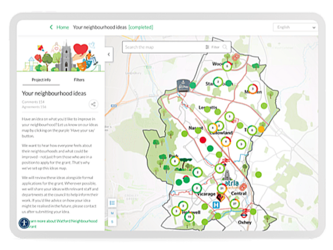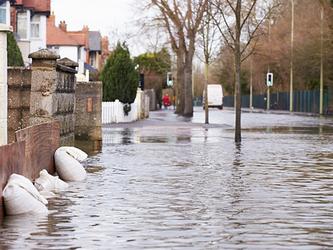Climate in context: Citizens’ role in addressing crisis is not homogeneous
The Wellcome Trust approached Ipsos with a challenge: motivate the public to take action on climate change through their own health. The organisation was planning to roll out a new communications and public engagement strategy, relying on key assumptions about how people worldwide understand ‘health’ and ‘climate change’; how relevant these concepts are to themselves and their communities; and how much they prioritise personal health.
To grasp the public’s perception, we recognised the need to step back and understand the contextual experiences of different communities in lower- and middle-income countries. We wanted to explore how these communities perceive health and climate change, and how these concepts fit into their lived realities.
Changing dialogue
The Wellcome Trust funds science and health research to promote knowledge and understanding of science and the value it brings. Within global health research, this dialogue has historically been top down, with the global north funding what it deemed necessary to support the global south. This is steeped in a colonial history of patronage, and centres one side’s knowledge over another. It is now recognised that this funding model can further marginalise communities and disempower development, and does not always answer the questions or needs of the community that it is intended to serve. Wellcome is moving towards a dialogue-oriented approach, listening to those on the ground and recognising existing workarounds that can be built upon.
Methodology: a model to engage communities
We decided that a traditional qualitative research method would only cover values and perceived beliefs, without giving the necessary context. So, we designed a participative ethnographic approach to engage with communities on their own terms.
We hired local ethnographers in six countries – Brazil, South Africa, Kenya, the United Arab Emirates (UAE), South Korea, and Thailand – and they became the linchpins of our research, shaping its design and findings. This approach also offered an opportunity for our community ethnographers to engage with their wider communities on climate change and health, making the research itself an engagement tool.
Throughout the research process, we held remote analysis sessions with Wellcome’s biological and social scientists, allowing us to build on each phase and incorporate their expertise into the emerging findings. Additionally, these discussions uncovered opportunities for the Wellcome Trust beyond the scope of the study.
During one analysis session, we noted three participants from different countries making connections between fertility and climate change:
“We don’t even think that being pregnant with global warming affects them, [but] it affects the foetus because it’s hot … someone was sending me a message a few minutes ago… ‘Mam, I can’t breathe, Mam, what must I do?’ I’m like, ‘the issue here is the environment’.” (Woman, South Africa)
One scientist’s initial reaction was to correct them, as they did not believe that being pregnant at a time of global warming affects individuals directly. This led to a broader discussion among the scientists from different disciplines, untangling individuals’ truths and exploring the concept of ‘scientific proof’. As a result, the Wellcome Trust called for international scientific research to understand the links between heat and maternal and foetal health, building research from the ground up.
Redefining climate change, questioning the myths and rethinking the public’s role
Our research found variations in the contextual understanding of climate change in different countries. For example, in Kenya, there is no direct translation for climate change, but people have noticed the shift in the environment. The impact of droughts on maize production is particularly prominent, leading participants to say: “The maize is dead.” Similarly, in Thailand, there is no single word for climate change, but participants associate global warming with rice production and water quality. Climate change in Brazil is deeply political, conflicting with Brazilian values of progress and indigenous values of preservation.
The understanding of who causes climate change and how to solve it also varies across cultures. Some participants believe Allah won’t allow climate change to become too severe, while others see it as God’s punishment for human actions.
“I think this is also part of God’s will. God sees that we have destroyed nature. He realises that we don’t know how precious nature and air is.” (Retired woman, South Korea)
These nuanced perspectives influenced the global monitor survey questionnaire, which removed the term ‘climate change’ and focused on experiential knowledge. Recognising the importance of cultural context, the Wellcome Trust aims to support global grassroots movements in tackling climate change.
The link between climate change and health is not straightforward. While some participants in certain countries understand the connection between heat and health, awareness of a direct link is uncommon. However, they do recognise indirect links, such as air and water pollution, as examples of climate change’s impact on health.
Interestingly, individual physical and mental health are not always the driving factor for action. For example, a Bangladeshi migrant construction worker in the UAE regularly suffers from heat stroke because of extreme weather conditions. He does not prioritise his personal health, however, or see it as a motivation to demand change. He migrated to provide financial support to his family back home, sacrificing his own wellbeing for the sake of his wider community. This demonstrates the complexity of factors that influence individuals’ actions and priorities.
The public’s role in addressing climate change is not homogeneous, even when considering local communities. Within the Amazon, tensions arise between indigenous communities and cattle farmers. Both groups prioritise economic needs, but their motivations and actions differ significantly. Indigenous communities view their relationship with the land as linked to their responsibility to ancestors and future generations. On the other hand, a farmer supporting Jair Bolsonaro (former president of Brazil) sees his role as providing opportunities and jobs to an otherwise impoverished community. So, addressing climate change requires meeting diverse communities where they are and responding to their specific priorities.
Economic migrants in the UAE may not have the time or mental space to contemplate climate change, but they are greatly affected by its consequences. This poses a significant question for the Wellcome Trust: how can it innovate to support these workers in mitigating the impacts of climate change, while also motivating those who have the luxury of prioritising halting climate change?
This research highlights the importance of understanding cultural context in addressing climate change. By debunking certain myths and provoking new questions, it identifies opportunities for future scientific innovation. It also serves as a tool for engagement with the communities involved, fostering collaboration and knowledge sharing.
Heidi Hasbrouck is a director in the ethnography practice at Ipsos. Also on the project team were Sophie Mathison, Sunny Sharma, James Bell and Lizz Bradley
This article was first published in the January 2024 issue of Impact.

We hope you enjoyed this article.
Research Live is published by MRS.
The Market Research Society (MRS) exists to promote and protect the research sector, showcasing how research delivers impact for businesses and government.
Members of MRS enjoy many benefits including tailoured policy guidance, discounts on training and conferences, and access to member-only content.
For example, there's an archive of winning case studies from over a decade of MRS Awards.
Find out more about the benefits of joining MRS here.













0 Comments